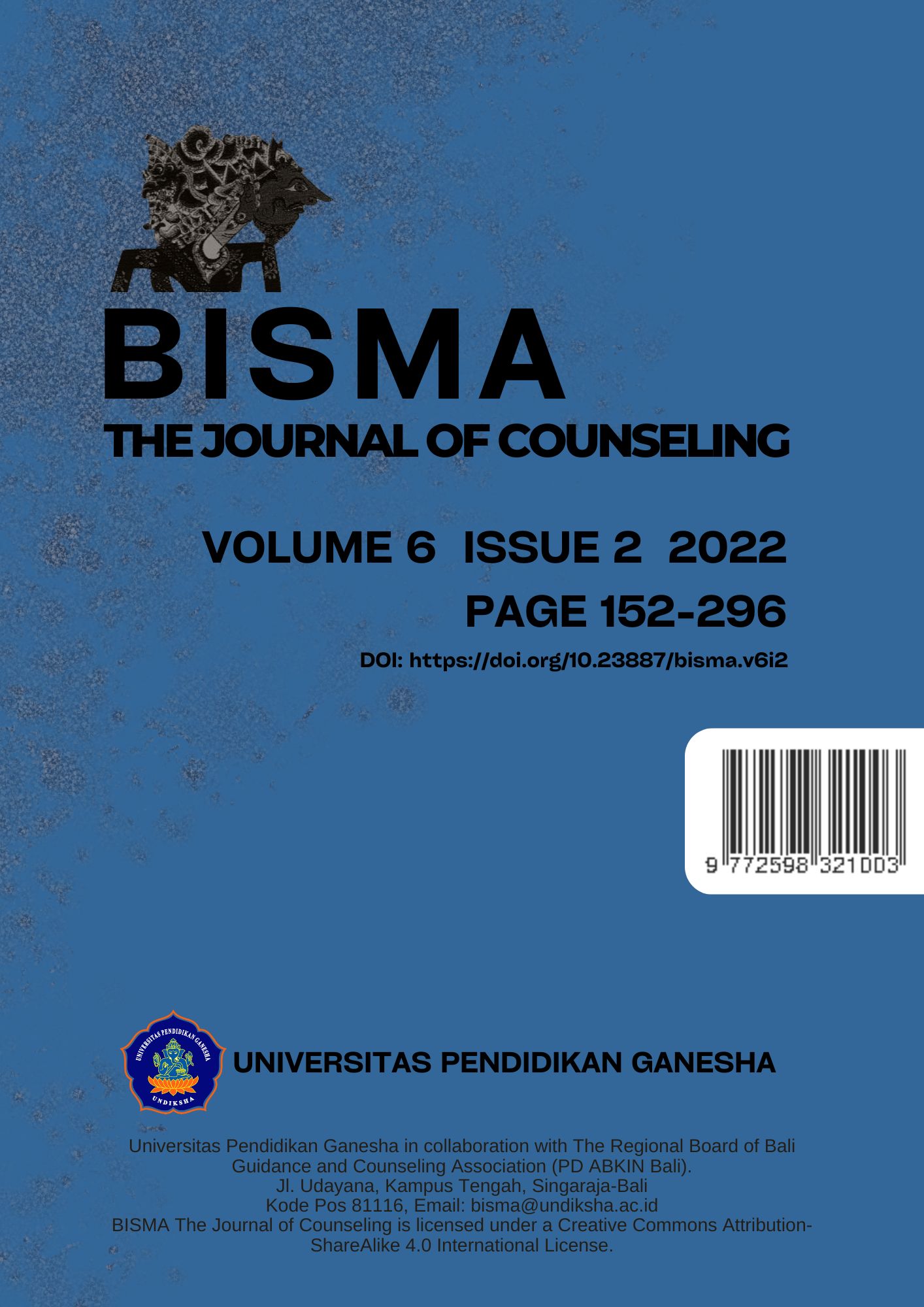Analysis of Andragogy Approach in Aspects of Tutor Performance According to Citizens Learning Equality Education
DOI:
https://doi.org/10.23887/bisma.v6i2.51160Keywords:
Analysis, Andragogy, PerformanceAbstract
The need for the application of andragogy principles in the adult learning approach is because learning efforts are different from children's learning efforts. Children's learning transmits a number of experiences, knowledge and skills in order to prepare children to face life in the future. In contrast, adult learning emphasizes more on guiding and helping adults to find knowledge, skills and attitudes in order to solve the problems of life they face. The accuracy of the approach used in organizing a learning activity will affect the success of the learning objectives. This study aims to 1) analyze the tutor's andragogy approach according to the learning community in the aspect of communication, 2) analyze the tutor's andragogy approach according to the learning community in terms of physical appearance. The method of collecting data is by distributing questionnaires to 40 residents learning equality education. The analytical method used is descriptive analysis of the quality of the results of the collection of questionnaires, it can be concluded that; 1) the andragogy approach to the performance aspect of tutors in terms of how to communicate tutors according to learning residents is still low/not yet communicative; 2) the andragogy approach in the aspect of tutor performance in terms of physical appearance according to learning residents is still low/less attractive.
References
Akib, M. (2013). Sasaran Atau Obyek Evaluasi Pendidikan Dan Penilaian Berbasis Sekolah. Jurnal Al-Hikmah, XIV(1), 1–12.
Dikson Silitonga. (2019). Aspek-Aspek Politik, Ekonomi, Sosial Dan Budaya Dalam Pendidikan : Pendidikan Dalam Perspektif Politik Di Indonesia. The Political of Education, 9–25. file:///C:/Users/SDN 27/Downloads/188-Article Text-337-1-10-20200430.pdf
Hidayati, A., Setiawati, S., & Sunarti, V. (2018). Gambaran Strategi Pembelajaran Partisipatif pada Kegiatan Pembelajaran Bahasa Indonesia dalam Program Paket B di PKBM Tanjung Sari Kota Sawahlunto. SPEKTRUM: Jurnal Pendidikan Luar Sekolah (PLS), 6(1), 1. https://doi.org/10.24036/spektrumpls.v1i1.9014
Kamil., M. (2009). Pendidikan Non Formal, Pengembangan Melalui Pusat Kegiatan Belajar Masyarakat . Bandung. CV. Alvabeta. CV. Alvabeta.
Khairunnisa, A. (2010). Hubungan Hasil Pelatihan dan Kompetensi Tutor dengan Pengelolaan Pembelajaran pada Pendidikan Kesetaraan Paket C. Jurnal Pendidikan Luar Sekolah, 5(2), 5–24.
Knowles, M. S. (1983). Releasing the Energy of Others - Making Things Happen. Journal of Management Development, 2(2), 26–35. https://doi.org/10.1108/eb060114
Krupar, A., Horvatek, R., & Byun, S. Y. (2017). Does Nonformal Education Matter? Nonformal Education, Immigration, and Skills in Canada. Adult Education Quarterly, 67(3), 186–208. https://doi.org/10.1177/0741713617697423
Lindeman, E. C. (1926). The Meaning of Adult Education. University of Oklahoma.
Munthe, A. P. (2015). Pentingya Evaluasi Program Di Institusi Pendidikan: Sebuah Pengantar, Pengertian, Tujuan dan Manfaat. Scholaria : Jurnal Pendidikan Dan Kebudayaan, 5(2), 1. https://doi.org/10.24246/j.scholaria.2015.v5.i2.p1-14
Puspita, N. K. C. (2021). Sebelum Pandemi, Ini Krisis-krisis yang Pernah Dialami Dunia dan Indonesia. Https://Ekbis.Sindonews.Com/Read/549242/33/Sebelum-Pandemi-Ini-Krisis-Krisis-Yang-Pernah-Dialami-Dunia-Dan-Indonesia-1632402551.
Raharjo, T. J., & Suminar, T. (2016). Pendidikan Kesetaraan Kelompok Belajar Paket a , B , Dan C Di Kota Semarang. Jurnal Edukasi.
Rizal, A. (2009). Pengaruh Kompetensi Tutor Terhadap Hasil Belajar Warga Belajar Kejar Paket B. https://lib.unnes.ac.id/2937
Soedomo, S. (1989). Pendidikan Luar Sekolah ke Arah Pengembangan Sistem Belajar Masyarakat. P2LPTK.
Solfema. (2017). Adversity Intelligence As A Contributing Factor Of Tutor’s Performance. European Journal of Education Studies, 3(11), 840–847. https://doi.org/10.5281/zenodo.1134472
Solfema, S. (2013). Andragogi Konsep dan Penerapannya. Wineka Cipta.
Suhud, M. A. (2005). Pendekatan Andragogi dalam Pengembangan Masyarakat. Aplikasia, VI(1), 1–13. http://digilib.uin-suka.ac.id/8318/1/Moh. Abu Suhud Pendekatan Andragogi Dalam Pengembangan Masyarakat.pdf
Suryadi, S., Kushardiyanti, D., & Gusmanti, R. (2021). Challenges of Community Empowerment in the Era of Industry Society 5.O. KOLOKIUM Jurnal Pendidikan Luar Sekolah, 9(2), 160–176. https://doi.org/10.24036/kolokium-pls.v9i2.492
Syur’aini, Setiawati, & Sunarti, V. (2011). Penanaman Nilai Karakter sebagai Upaya Mereduksi Dampak Negatif Era Digital. Pustaka Pelajar. http://ejournal.unp.ac.id/index.php/e-tech/article/viewFile/101344/100536
Tamat, T. (1985). Dari Pedagogi ke Andragogi Pedoman bagi Pengelola Pendidikan dan Latihan. Pustaka Pelajar.
Walker, L. F., Thomas, R., & Driska, A. P. (2018). Informal and nonformal learning for sport coaches: A systematic review. International Journal of Sports Science and Coaching, 13(5), 694–707. https://doi.org/10.1177/1747954118791522
Wilson, J. P. (2012). The Adult Learner: The Definitive Classic in Adult Education and Human Resource Development. In Industrial and Commercial Training (Vol. 44, Issue 7). Taylor and Francis. https://doi.org/10.1108/00197851211268045
Zembylas, M. (2008). Adult learners’ emotions in online learning. Distance Education, 29(1), 71–87. https://doi.org/10.1080/01587910802004852
Downloads
Published
Issue
Section
License
Copyright (c) 2022 Vevi Sunarti, Jamaris, Solfema, Mega Iswari, Abna Hidayati, Reza Gusmanti

This work is licensed under a Creative Commons Attribution 4.0 International License.









